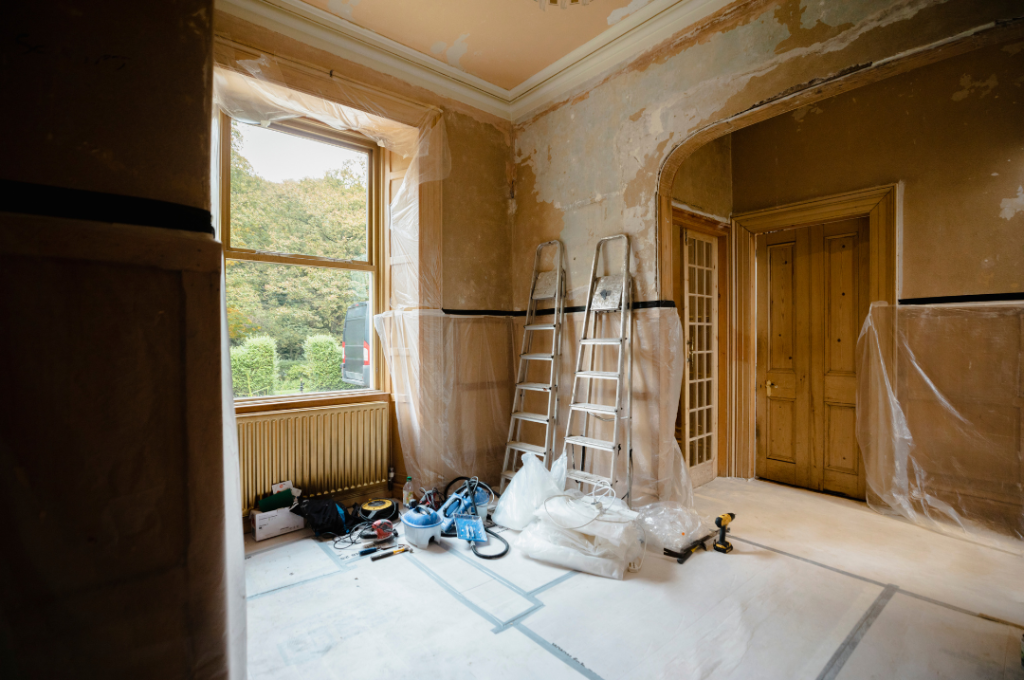
No Experience? No Problem! The Ultimate Guide to Funding Your First Property Renovation Like a Pro!
Are you dreaming of flipping a property for profit but worried about your lack of experience? Don’t let that hold you back! Even if you’ve never renovated a house before, you can still secure the right financing to fund your project. One of the most popular ways to finance a property renovation—especially for first-time developers—is through a bridging loan.
In this guide, we’ll break down everything you need to know about bridging loans, how to apply, the costs involved, common pitfalls, and how to calculate whether your project is financially viable.
What is a Bridging Loan?
A bridging loan is a short-term secured loan designed to ‘bridge the gap’ until longer-term financing is available or until the property is sold. These loans are ideal for first-time developers who need quick access to funds to purchase and renovate a property. They are commonly used when a property is uninhabitable and therefore ineligible for a standard mortgage.
Bridging loans can be used for:
- Buying properties at auction
- Renovating run-down homes
- Converting commercial properties into residential use
- Funding refurbishment projects requiring significant improvements
For renovation and refurbishment projects, bridging loans can cover 100% of the construction costs, subject to the maximum loan amount not exceeding 70% of the Gross Development Value (GDV)—the expected final value of the property after refurbishment. This structure ensures that lenders mitigate their risks while giving developers the necessary funds to complete their projects.
How to Apply for a Bridging Loan
Applying for a bridging loan is faster and more flexible than applying for a mortgage. Here’s what you need to do:
1. Choose the Right Lender
Not all lenders cater to first-time developers, so it’s important to work with a specialist bridging loan broker who understands your needs. They can help you secure the best terms and rates available.
2. Have a Solid Exit Strategy
Lenders need to know how you’ll repay the loan. Typical exit strategies include:
- Selling the renovated property for a profit
- Refinancing onto a long-term mortgage
- Letting the property and securing a buy-to-let mortgage
3. Gather Your Documents
You’ll need:
- Proof of ID and address
- Property details and purchase agreement
- A business plan or refurbishment schedule
- Proof of funds for deposit and additional costs
- A realistic breakdown of renovation costs
4. Property Valuation and Loan Offer
The lender will assess the property and determine how much they’re willing to lend. Bridging loans typically cover up to 75% of the property’s value before refurbishment, but lenders will also consider the GDV to determine if your project is viable.
5. Legal Process and Funds Released
Once legal checks are complete, funds are released—often in just 5-14 days, making bridging loans one of the fastest funding options available for property developers.
What Are the Costs Involved?
Bridging loans come with costs that you must factor into your budget:
- Interest Rates – Typically 0.45% to 1.5% per month, rather than per year.
- Arrangement Fees – Usually 1-2% of the loan amount.
- Valuation Fees – Cost depends on the property value, typically £250-£1,500.
- Legal Fees – You’ll need to cover both your own and the lender’s legal fees.
- Exit Fees – Some lenders charge a fee for early repayment.
- Broker Fees – If using a specialist broker, a fee may apply for securing the best loan deal.
What Can Go Wrong?
While bridging loans are a great tool for first-time developers, things can go wrong if you’re not prepared. Here’s what to watch out for:
- Underestimating Renovation Costs – Always budget for unexpected expenses. A contingency fund of at least 10-15% is recommended.
- Delays in Selling or Refinancing – If your exit strategy falls through, you may struggle to repay the loan on time, leading to additional interest costs.
- Interest Costs Adding Up – Because bridging loans are short-term, failing to exit quickly can eat into your profits.
- Market Conditions – A downturn in the housing market could affect your expected sale price, reducing profitability.
How Much Profit Do You Need to Make?
A good rule of thumb is to aim for at least 20% profit after all costs. Here’s a simple way to calculate whether your project is viable:
Example Calculation
- Purchase Price: £100,000
- Renovation Costs: £30,000
- Other Costs (Fees, Interest, etc.): £15,000
- Total Cost: £145,000
- Expected Sale Price (GDV): £180,000
- Profit: £35,000 (24% margin)
If your projected profit margin is below 20%, the deal may not be worth the risk. Always conduct a thorough feasibility study before committing.
Ways to Maximise Profitability
- Buy Below Market Value – Finding properties that are undervalued increases your profit potential.
- Cost Control – Keep refurbishment costs within budget and avoid unnecessary expenditures.
- Speed Up the Renovation – Completing the project quickly reduces loan interest costs.
- Choose the Right Area – Renovating in high-demand locations ensures a quicker sale.
Final Thoughts: Is a Bridging Loan Right for You?
If you’re a first-time property developer, a bridging loan can be a game-changer—giving you the financial boost needed to kickstart your renovation project. However, it’s vital to plan carefully, understand the costs, and have a clear exit strategy to ensure success.
Key Takeaways





Want expert guidance on securing the best bridging loan for your project? Contact us at Sunrise Commercial for tailored advice!
For more information contact us for a fees free chat.
To keep informed of our latest property articles about all things property follow us on facebook



#PropertyInvesting #BridgingLoans #FirstTimeFlippers #HouseFlipping #PropertyFinance #RealEstateFunding #UKProperty #RenovationLoans #PropertyDevelopment #BridgingFinance
